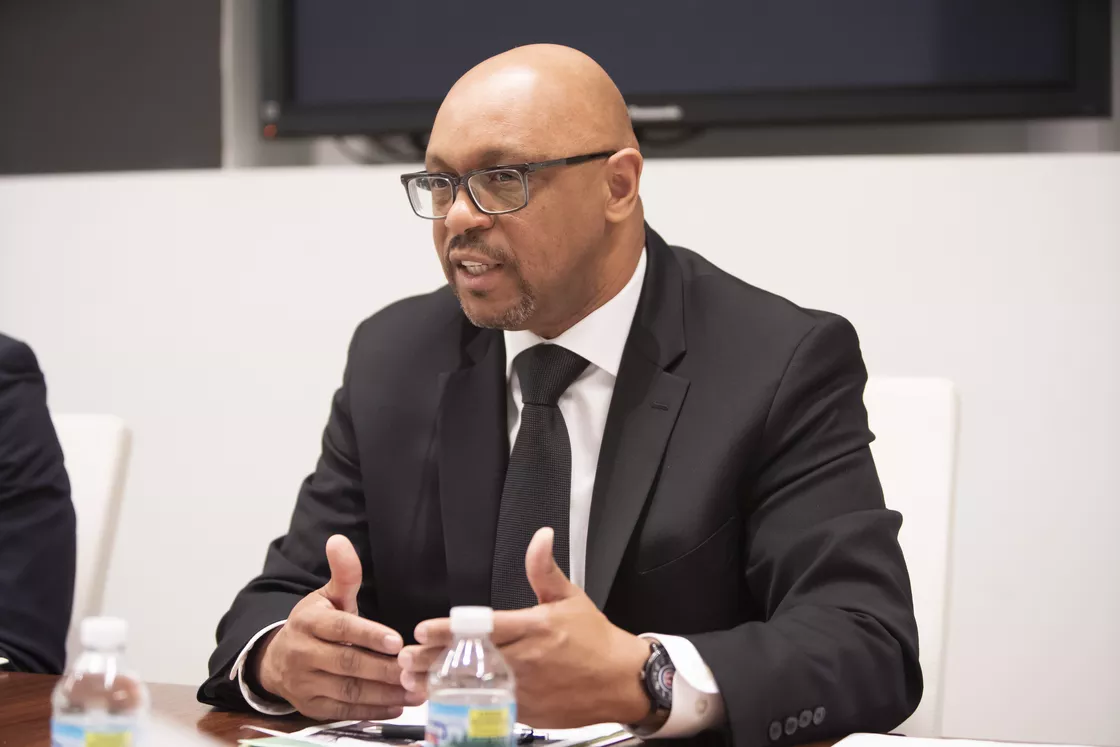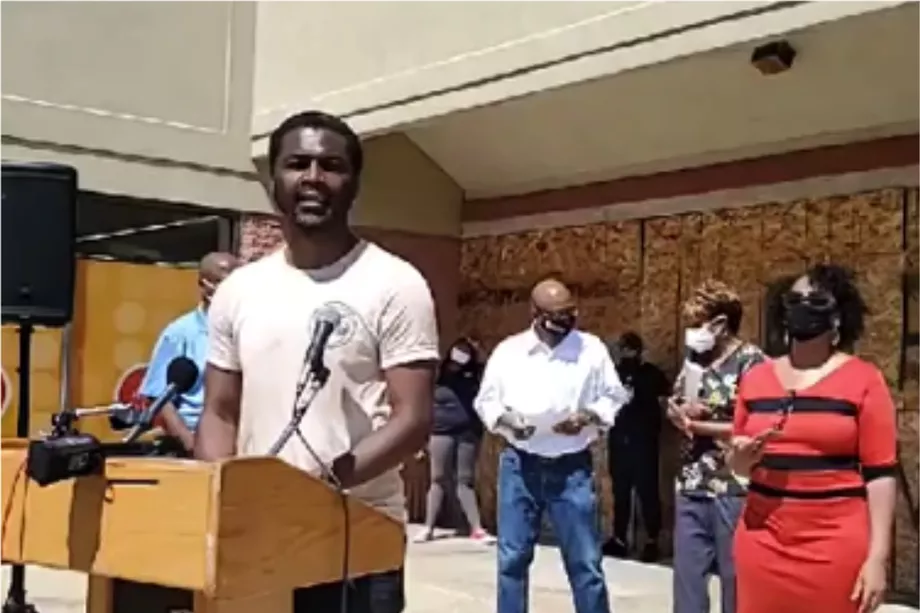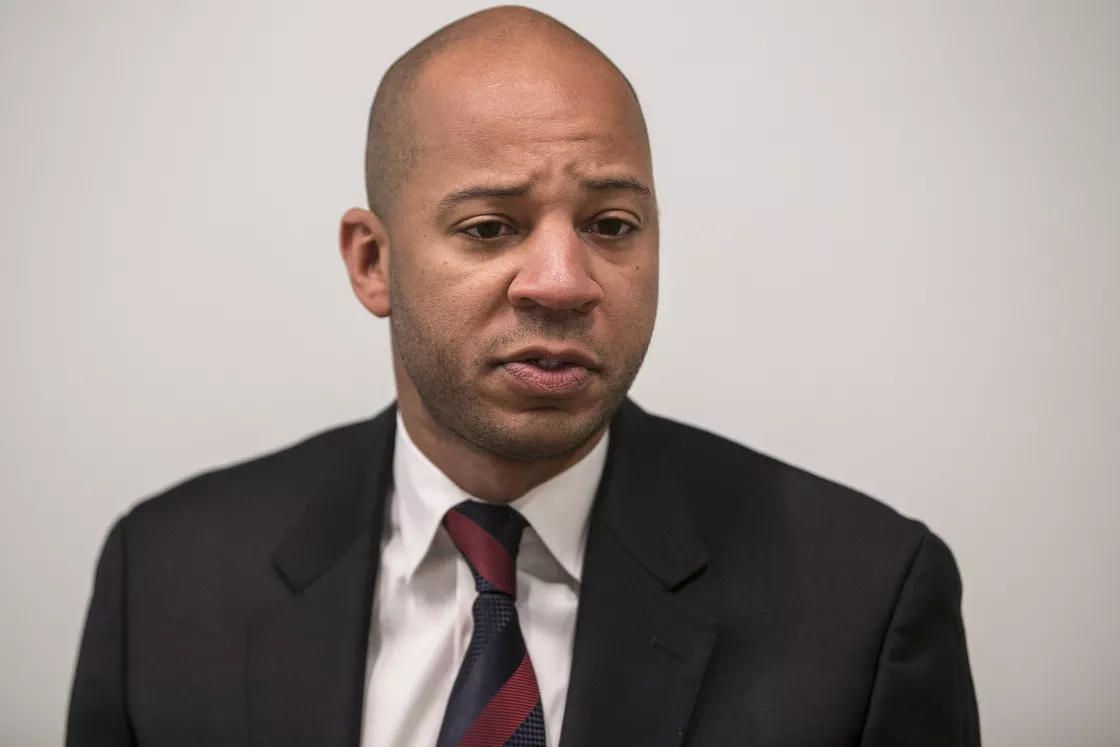Lawmakers want money to rebuild areas wracked by looting and reforms to end racism that ‘has torn us
- By Neal Earley
- Jun 2, 2020
- 3 min read
State Rep. La Shawn Ford, D-Chicago, called for Pritzker to sign an executive that he says will free up spending to help rebuild African-American communities around the state in the wake of both the COVID-19 pandemic and the looting.
SPRINGFIELD — Seeking to address the systemic racism plaguing the nation and the painful looting that devastated the South and West sides, African American state legislators on Tuesday called for money to rebuild, criminal justice reforms to heal and an executive order from Gov. J.B. Pritzker to “to immediately respond to the crisis in our community.”
The message from the Illinois Legislative Black Caucus was delivered in front of a boarded-up shopping center on the South Side. The killing of George Floyd in Minneapolis has renewed peaceful protests demanding police and criminal justice reforms across the nation, and has also raised questions in Chicago about why police couldn’t better protect neighborhoods on the South and West sides.
State Rep. La Shawn Ford, D-Chicago, called for Pritzker to sign an executive order that Ford says will free up spending to help rebuild African-American communities around the state in the wake of both the COVID-19 pandemic and the looting.
“We know the black community has been hit the hardest by COVID-19, the black community has been hit the hardest by violence, the black community has been hit the hardest by police brutality and the black community has been hit the hardest by the recent looting and riots,” Ford said.
Comparing the unrest to a natural disaster, Ford said he wants Pritzker to use as much of his executive power to redirect state and federal funds to African-American communities hardest hit by looting and the COVID-19 pandemic.
With billions in federal funding from the federal stimulus bill at his disposal and a recent budget passed by the state Legislature that gives Pritzker some discretion in spending, Ford said an executive order will go a long way in rebuilding the state and give the governor the ability to “operate outside of the Legislature,” that could free up spending from “lockboxes” to deal with the crisis.
The federal money is separated into funds for the Illinois Emergency Management Agency and for COVID-19 related response that Ford said should be spent on African-American communities around the state. Ford argues that federal grants as well as money allocated in the operating and capital budgets could be used to rebuild the state.
“He should prioritize where he is going to spend money just like every family does,” Ford said. “Families that struggle can’t pay all the bills, but they pay the bills that matter most.”
Lawmakers also argued that there was “no police” as people “gutted” neighborhood businesses over the weekend.
State Rep. Lamont Robinson, D-Chicago, said he took refuge in his South Side insurance and legislative offices on Sunday evening to prevent looters from destroying them, saying “we saw no police presence respond despite numerous calls.”
“Around the corner from my insurance business and the state representative offices at 51st and Indiana stood a variety of small businesses that serve the neighborhood and now stand gutted,” Robinson said.
State Rep. Thaddeus Jones, D- Calumet City, said the damage done to businesses in the South suburbs could take five to 10 years to rebuild.
“Until we address the root of racism that is tearing us apart now and has torn us apart, we will never get back to the way we were,” Jones said.
The General Assembly is not scheduled to return to Springfield until November for the fall veto session, but on Tuesday the caucus of black state senators and House members offered up proposed police reforms. State Rep. Justin Slaughter, D-Chicago, suggested the Legislature make it easier for people to access police misconduct files, work on “modernizing” the use of force statue and protect whistleblowers within police departments.
“Let me be crystal clear, it’s not just about police accountability and police brutality, the Illinois Legislative Black Caucus has a broad mission and broad demands,” Slaughter said.
At a separate event in Chicago on Tuesday, Pritzker said he had no plans to call for a special legislative session, suggesting that was up to the lawmakers. But he also said the current crisis underscores that “we have systemic racism that also needs to be addressed in a state budget.”
“Over the last five days I think it’s been brought to the fore that our communities — our black and brown communities — are the ones that we need to focus on,” Pritzker said.
Contributing: Rachel Hinton






Comments